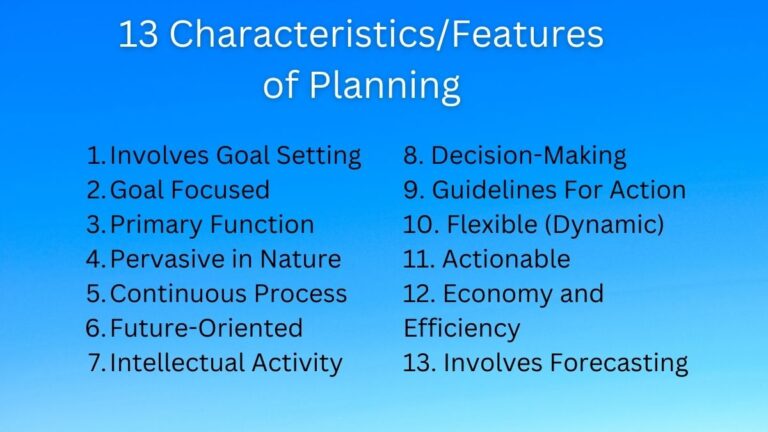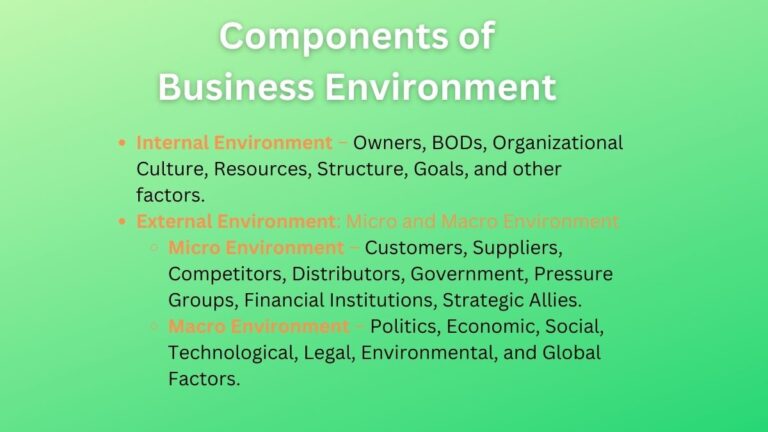13 Characteristics/Features of Planning Function of Management (Explained)
Characteristics of Planning Planning can be defined as an action that is deciding today what and how to do in order to achieve the desired goals. Planning is an inevitable part of every organization. Being the first among management functions managers need to formulate effective plans to ensure effective functioning in the workplace and achievement…








